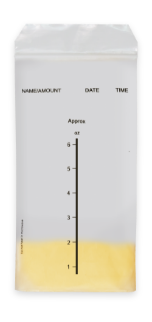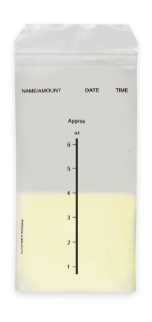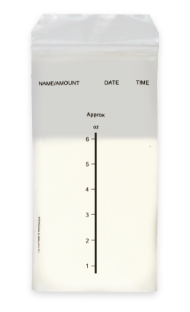What to Expect
Many new moms have questions about breastfeeding. Knowing what to expect during the first few days can help.
Here are answers to 5 common questions about breastfeeding:
Newborns need to nurse at least 8 to 12 times every 24 hours. Nursing often also helps your body make plenty of
milk. As your baby grows, they will develop their own feeding pattern or schedule. Your baby will also start to
show you signs when they are hungry, so you nurse when they are ready to eat.
There is no set time for feedings. They may be 15 to 20 minutes per breast. They may be shorter or longer. Your baby will let you know when they are finished feeding. They may turn their head away or fall asleep. If you are worried your baby is not getting enough milk, talk with your healthcare provider or WIC.
Breastfeeding is recommended for at least the first six months of life. Breastfeeding for 12 months or longer, or for as long as wanted by both mother and baby, will continue to provide health benefits. WIC can help you meet your breastfeeding goals.

BIRTH
MILK- Your body makes a thick, yellowish milk in small amounts.
- This milk is called colostrum and it protects your baby from getting sick.
- Your baby will probably be awake in the first hour after birth.
- This is a good time to breastfeed your baby.
- You will be tired and excited.
First 12-24 Hours
MILK- Your baby will drink 1 to 2 teaspoons at each feeding.
- Your milk has all your baby needs and in the right amount.
- It’s normal for your baby to sleep heavily. Labor and delivery are hard work!
- Some babies may be too sleepy to latch at first.
- Within the first 24 hours after birth, babies should eat 8 or more times.
- Some babies may need to be woken up to eat enough.
- When your baby wakes up, look for signs they are hungry.
- Feedings may be short and all over the place – that’s okay!
- You will be tired, too. Be sure to rest when possible.

NEXT 3-5 DAYS
MILK- Your mature (white) milk takes the place of colostrum. It’s normal for mature milk to have a yellow or golden tint at first.
- Your baby will feed a lot, most likely 8 to 12 times or more in 24 hours.
- Very young, breastfed babies do not eat on a schedule. It’s okay if your baby eats every 2 to 3 hours for several hours, then sleeps for 3 to 4 hours.
- Feedings may take about 15 to 20 minutes on each breast.
- The baby’s sucking rhythm will be slow and long, and they might make gulping sounds.
- Your breasts may feel full and leak.
- You can use disposable or cloth pads in your bra to help with leaking.
- If you are not noticing these changes in your breasts, contact your healthcare provider or WIC.

AT 4-6 WEEKS
MILK- White human milk continues.
- Your baby will be better at breastfeeding and have a larger stomach to hold more milk. Feedings may take less time and may be further apart.
- Your body gets used to breastfeeding.
- Your breasts may become softer, and the leaking may slow down.
